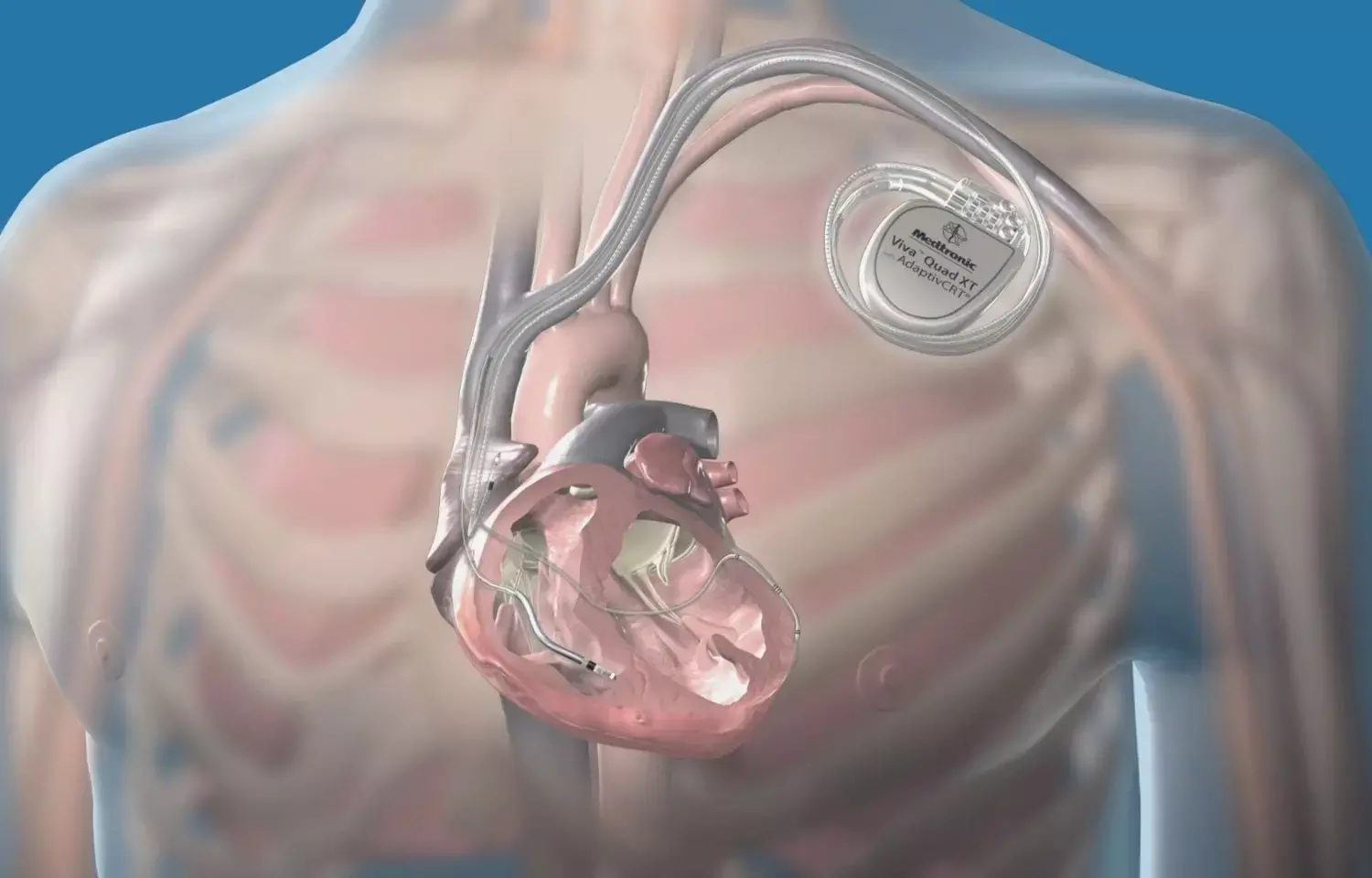- Home
- Medical news & Guidelines
- Anesthesiology
- Cardiology and CTVS
- Critical Care
- Dentistry
- Dermatology
- Diabetes and Endocrinology
- ENT
- Gastroenterology
- Medicine
- Nephrology
- Neurology
- Obstretics-Gynaecology
- Oncology
- Ophthalmology
- Orthopaedics
- Pediatrics-Neonatology
- Psychiatry
- Pulmonology
- Radiology
- Surgery
- Urology
- Laboratory Medicine
- Diet
- Nursing
- Paramedical
- Physiotherapy
- Health news
- Fact Check
- Bone Health Fact Check
- Brain Health Fact Check
- Cancer Related Fact Check
- Child Care Fact Check
- Dental and oral health fact check
- Diabetes and metabolic health fact check
- Diet and Nutrition Fact Check
- Eye and ENT Care Fact Check
- Fitness fact check
- Gut health fact check
- Heart health fact check
- Kidney health fact check
- Medical education fact check
- Men's health fact check
- Respiratory fact check
- Skin and hair care fact check
- Vaccine and Immunization fact check
- Women's health fact check
- AYUSH
- State News
- Andaman and Nicobar Islands
- Andhra Pradesh
- Arunachal Pradesh
- Assam
- Bihar
- Chandigarh
- Chattisgarh
- Dadra and Nagar Haveli
- Daman and Diu
- Delhi
- Goa
- Gujarat
- Haryana
- Himachal Pradesh
- Jammu & Kashmir
- Jharkhand
- Karnataka
- Kerala
- Ladakh
- Lakshadweep
- Madhya Pradesh
- Maharashtra
- Manipur
- Meghalaya
- Mizoram
- Nagaland
- Odisha
- Puducherry
- Punjab
- Rajasthan
- Sikkim
- Tamil Nadu
- Telangana
- Tripura
- Uttar Pradesh
- Uttrakhand
- West Bengal
- Medical Education
- Industry
Earlier the better - when it comes to ablation of VTs in people with ICDs, says Circulation study

Italy: Researchers in a recent study strongly support that when it comes to catheter ablation of ventricular tachycardias (VTs) in people with implantable cardiac defibrillators (ICDs), the earlier is the better.
"VT ablation after first appropriate shock was tied to a lower risk of the combined death or worsening heart failure hospitalization end point, fewer ICD shocks, and lower mortality," Paolo Della Bella, San Raffaele University-Hospital, Milan, Italy, and colleagues wrote in their study published in the journal Circulation. "Our findings provide support considering ventricular tachycardia ablation following the first ICD shock."
There is no stronghold regarding the optimal timing for catheter ablation of ventricular tachycardia. No randomized trials have evaluated the benefit of ablation after the first ICD shock. Considering this, Dr. Bella and colleagues conducted a 2-phase, prospective, multicenter, randomized clinical trial called PARTITA Trial.
In an initial observational phase until first appropriate shock (phase A), patients with ischemic or nonischemic dilated cardiomyopathy and primary or secondary prevention indication for ICD were enrolled. After their reconsent, they were randomly assigned in the ratio of 1:1 in phase B to receive immediate ablation (within 2 months from shock delivery) or continuation of standard therapy.
A composite of death from any cause or hospitalization for worsening heart failure was the primary end point. Amiodarone intake was not allowed except for documented atrial tachyarrhythmias. Phase B of the trial was interrupted on July 23, 2021 as a result of the first interim analysis on the basis of the Bayesian adaptive design.
The study led to the following findings:
- Of the 517 patients enrolled in phase A, 154 (30%) had ventricular tachycardia, 56 (11%) received an appropriate shock over a median follow-up of 2.4 years, and 47 of 56 (84%) agreed to participate in phase B.
- After 24.2 (8.5-24.4) months, the primary end point occurred in 1 of 23 (4%) patients in the ablation group and 10 of 24 (42%) patients in the control group (hazard ratio, 0.11).
- The results met the prespecified termination criterion of >99% Bayesian posterior probability of superiority of treatment over standard therapy.
- No deaths were observed in the ablation group versus 8 deaths (33%) in the control group; there was 1 worsening heart failure hospitalization in the ablation group (4%) versus 4 in the control group (17%). ICD shocks were less frequent in the ablation group (9%) than in the control group (42%).
"These findings provide support for considering ventricular tachycardia ablation after the first ICD shock," the researchers conclude.
Reference:
The study titled, "Does Timing of Ventricular Tachycardia Ablation Affect Prognosis in Patients With an Implantable Cardioverter Defibrillator? Results From the Multicenter Randomized PARTITA Trial," appears in the journal Circulation.
KEYWORDS: Circulation, ventricular tachycardias, implantable cardiac defibrillators, ICD shock, cardiac implantable device, AHA, Paolo Della Bella, heart failure, hospitalization, catheter ablation
Dr Kamal Kant Kohli-MBBS, DTCD- a chest specialist with more than 30 years of practice and a flair for writing clinical articles, Dr Kamal Kant Kohli joined Medical Dialogues as a Chief Editor of Medical News. Besides writing articles, as an editor, he proofreads and verifies all the medical content published on Medical Dialogues including those coming from journals, studies,medical conferences,guidelines etc. Email: drkohli@medicaldialogues.in. Contact no. 011-43720751


